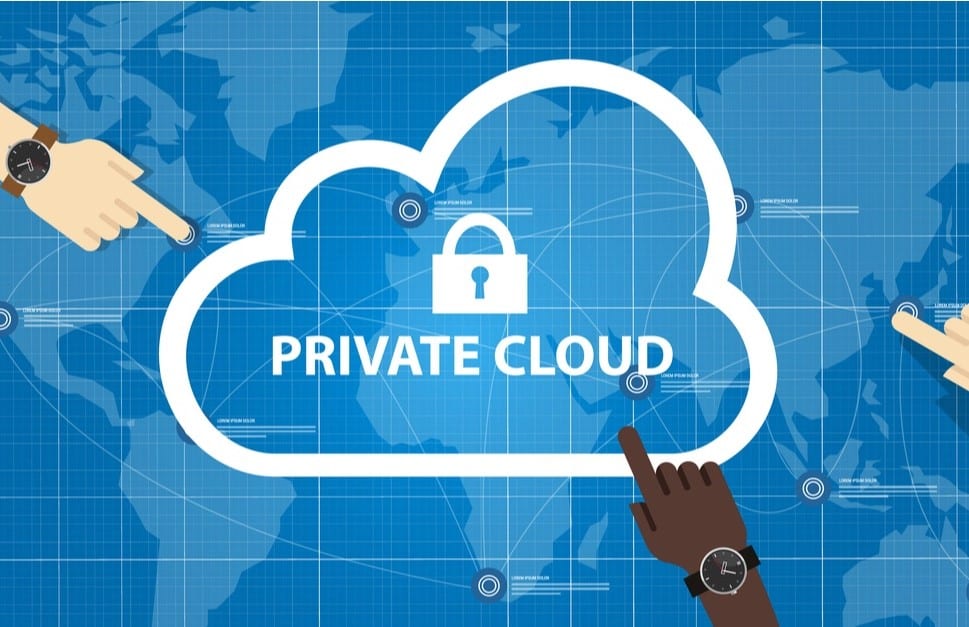482
With a private cloud, you can customize your organization’s IT infrastructure and you get increased data security.
This is the private cloud
The private cloud is also known as the corporate or company cloud. It is a cloud that does not provide access over the Internet. It is hosted on internal company servers or by third parties.
- The private cloud offers much more security and control than public clouds. It is not accessible to the general public and is usually run by companies or government agencies. Access is provided via the intranet or a locked VPN (virtual private network).
- The security of the cloud service is ensured by firewalls, for example. This means that the private cloud applications are only available to authorized persons. Since the cloud service is only shared internally, the private cloud offers flexibility, control, as well as increased security.
- Relevant parameters such as storage as well as network capacity are tailored to the users. Due to the private cloud, a flexible adjustment of the computing power is possible. The private cloud is primarily advantageous for organizations with strict guidelines regarding data processing and data security.
- The advantages of a private cloud include data control as well as IT infrastructure. Thus, these parameters remain within the own organization. A private cloud allows structures to be downsized, which makes them more efficient.
- You can integrate the hardware and controls you need. Thus, you have free design options and can design the cloud according to your individual needs. Plus, you don’t have to be subject to the regulatory requirements of a cloud service provider.
- One disadvantage of setting up a private cloud is the initial cost. These can be high, depending on the hardware and controls, as well as additional IT staff. In addition, any adjustments after the elements have been purchased can be expensive.
